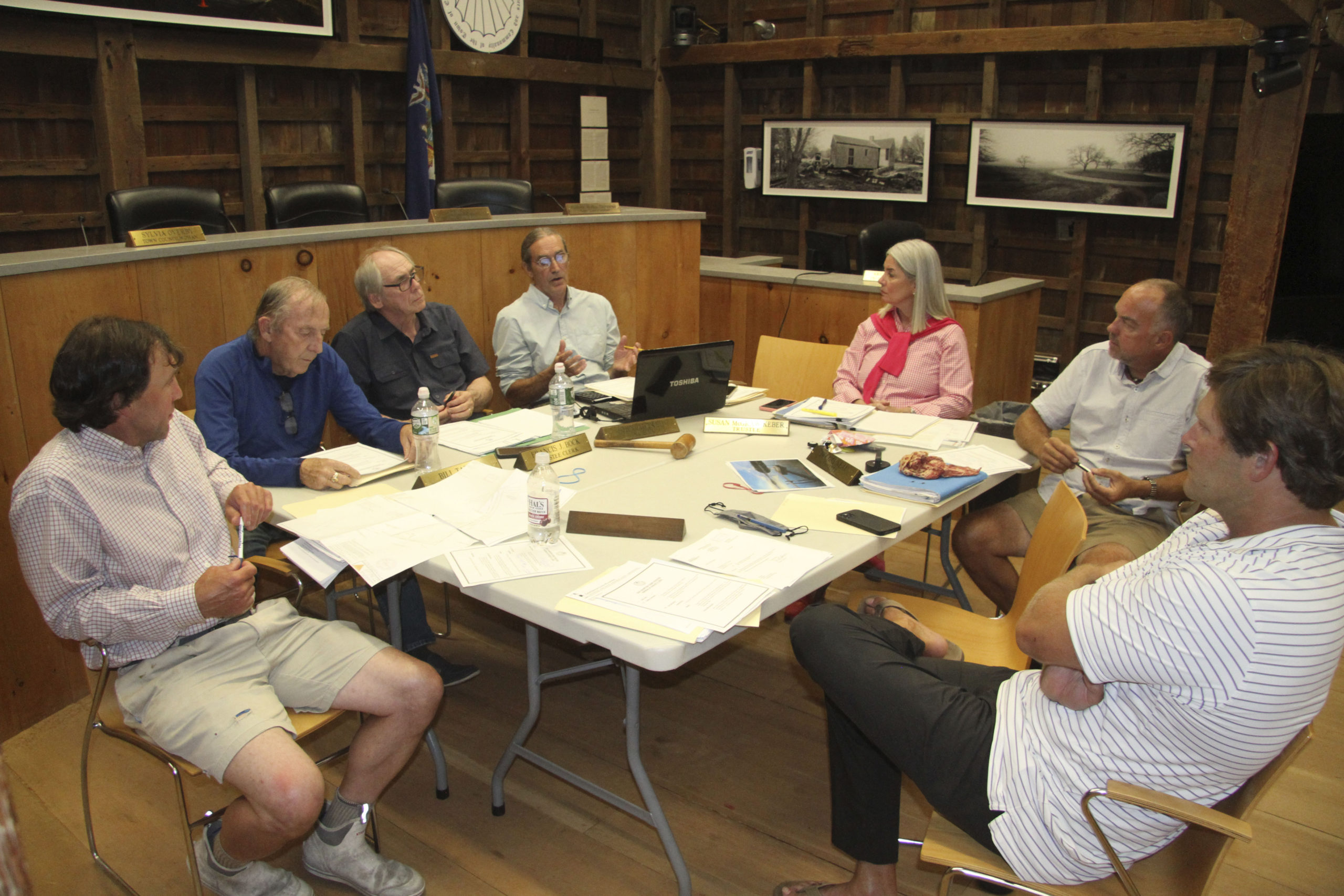
The East Hampton Town Trustees this week voted to impose a one-year moratorium on the approval of new docks while the board examines its dock regulations and considers expanding its decades-old prohibition on docks in nearly all of its waters.
The moratorium adopted on Monday, November 22, will halt any consideration by the Trustees of docks, catwalks and other floating platforms at waterfront residential properties, but will not apply to commercial marinas or to other floating structures common in local bays, like duck hunting blinds and floating shellfish racks.
With the moratorium in place, the Trustees will begin compiling an inventory of all the existing docks in the town, including some that may have been built without permits.
“What we’re about to endeavor is a very big project,” Trustees Clerk Francis Bock said. “The biggest thing that is going to come out of this is going to be an inventory of what’s out there, and what’s permitted and what’s not permitted. We know there are quite a few non-permitted structures in existence.”
The moratorium comes a month after a majority of the Board of Trustees granted permission to the owners of a Three Mile Harbor Road property to construct a dock — the first approval in decades — over the protestations of some members of the board.
The dock was granted to John McGinn, the owner of 275 Three Mile Harbor Road, along the eastern shoreline of Three Mile Harbor, just to the south of East Hampton Point. That shoreline was the lone stretch of waterfront that the Town Trustees specifically exempted from a townwide prohibition on the construction of new docks that the board adopted in 1987.
The application was before the Trustees for more than a year and went through several modifications to meet Trustees’ concerns.
Some members of the board said that they didn’t like the idea of allowing a new dock and worried that it would set precedent and spark a flurry of new applications from other property owners. Still, they saw no grounds for rejecting it in light of the policy expressly allowing docks in that area.
Board of Trustees attorney Chris Carillo had assured the Trustees that their decision on one dock would not set a precedent that would compel the Trustees to approve another like it.
The attorney likewise sought to assuage concerns this week by some members of the board that exempting commercial docks from the new moratorium would lead to a rush of new dock proposals.
The unlikelihood of that happening aside, the attorney said the Trustees have free rein over whether new docks are welcomed or not.
“You guys have the absolute right to say no,” he told the board on Monday. “Do not feel that if we get a commercial dock application in the next year that you’re going to be obligated to approve it because you didn’t put a moratorium on it.”